Changsoo Jung
TRACE: Real-Time Multimodal Common Ground Tracking in Situated Collaborative Dialogues
Mar 12, 2025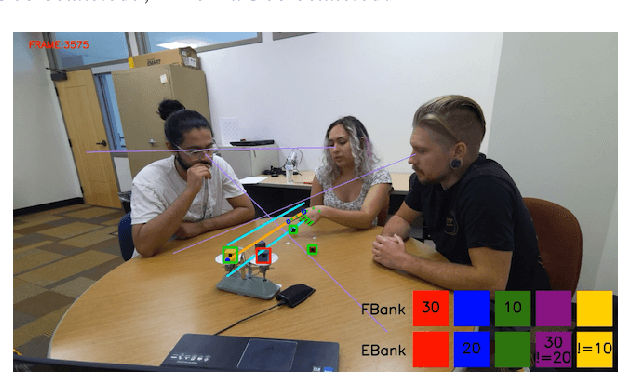

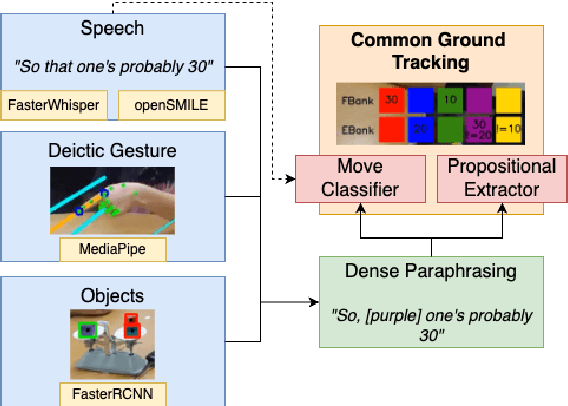
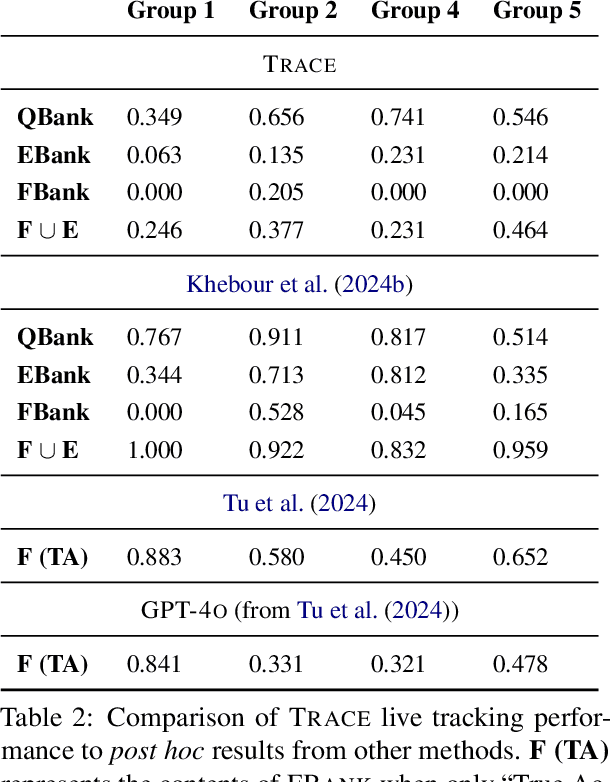
Abstract:We present TRACE, a novel system for live *common ground* tracking in situated collaborative tasks. With a focus on fast, real-time performance, TRACE tracks the speech, actions, gestures, and visual attention of participants, uses these multimodal inputs to determine the set of task-relevant propositions that have been raised as the dialogue progresses, and tracks the group's epistemic position and beliefs toward them as the task unfolds. Amid increased interest in AI systems that can mediate collaborations, TRACE represents an important step forward for agents that can engage with multiparty, multimodal discourse.
Simultaneous Reward Distillation and Preference Learning: Get You a Language Model Who Can Do Both
Oct 11, 2024
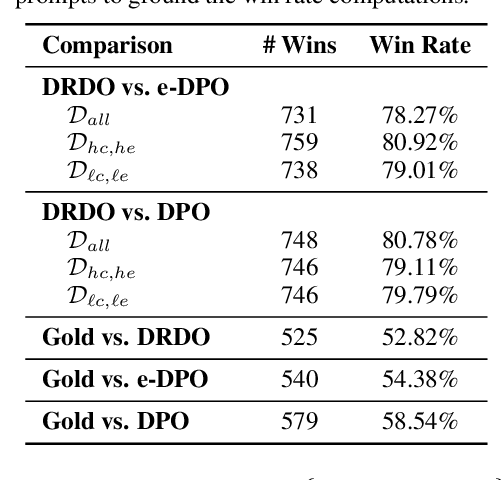
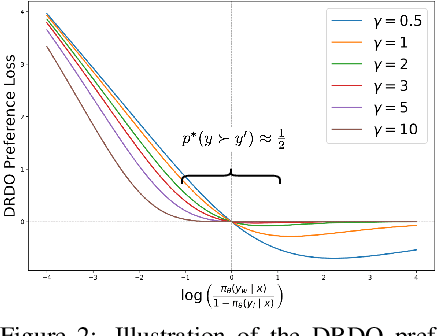

Abstract:Reward modeling of human preferences is one of the cornerstones of building usable generative large language models (LLMs). While traditional RLHF-based alignment methods explicitly maximize the expected rewards from a separate reward model, more recent supervised alignment methods like Direct Preference Optimization (DPO) circumvent this phase to avoid problems including model drift and reward overfitting. Although popular due to its simplicity, DPO and similar direct alignment methods can still lead to degenerate policies, and rely heavily on the Bradley-Terry-based preference formulation to model reward differences between pairs of candidate outputs. This formulation is challenged by non-deterministic or noisy preference labels, for example human scoring of two candidate outputs is of low confidence. In this paper, we introduce DRDO (Direct Reward Distillation and policy-Optimization), a supervised knowledge distillation-based preference alignment method that simultaneously models rewards and preferences to avoid such degeneracy. DRDO directly mimics rewards assigned by an oracle while learning human preferences from a novel preference likelihood formulation. Our experimental results on the Ultrafeedback and TL;DR datasets demonstrate that policies trained using DRDO surpass previous methods such as DPO and e-DPO in terms of expected rewards and are more robust, on average, to noisy preference signals as well as out-of-distribution (OOD) settings.
 Add to Chrome
Add to Chrome Add to Firefox
Add to Firefox Add to Edge
Add to Edge